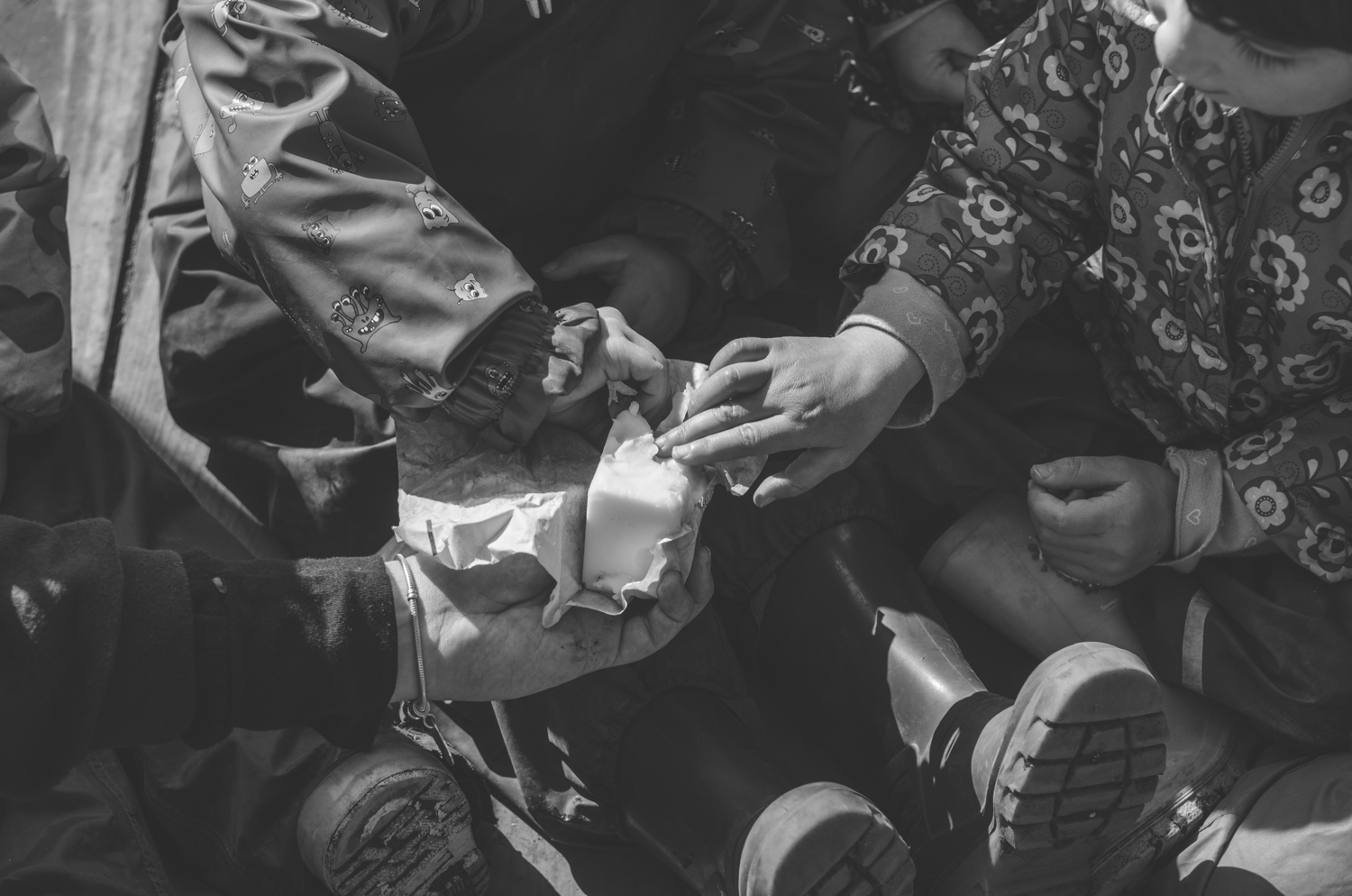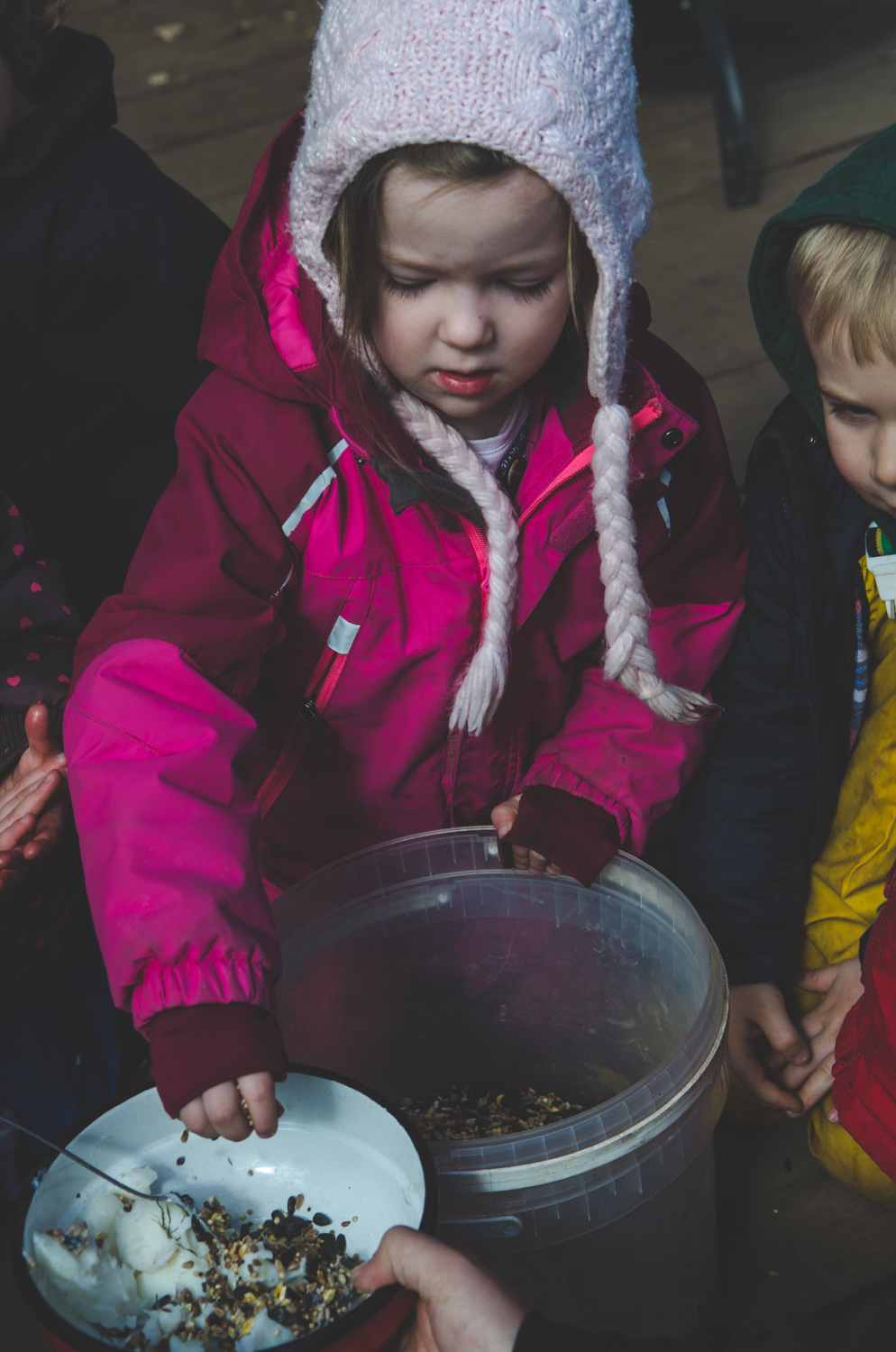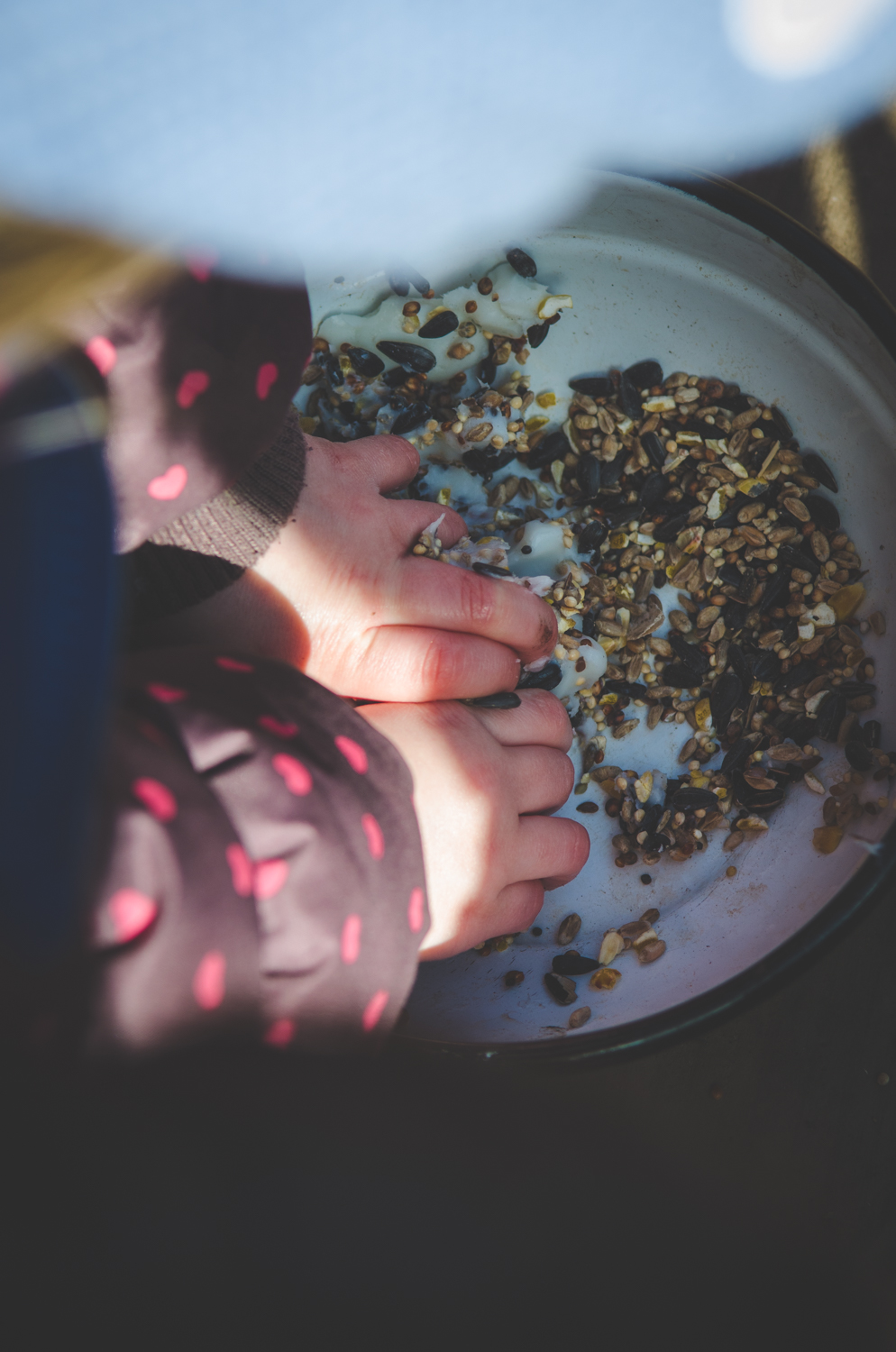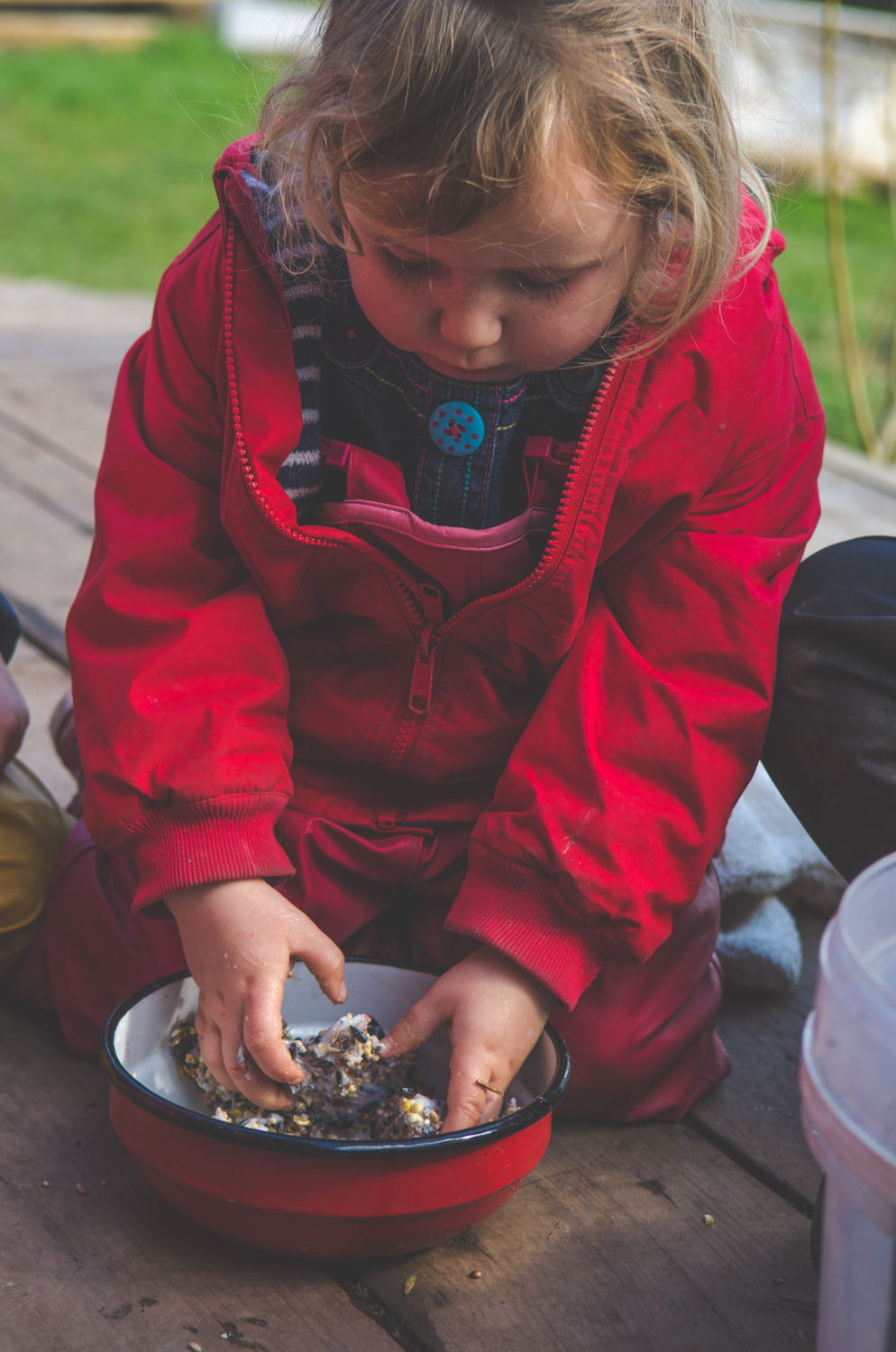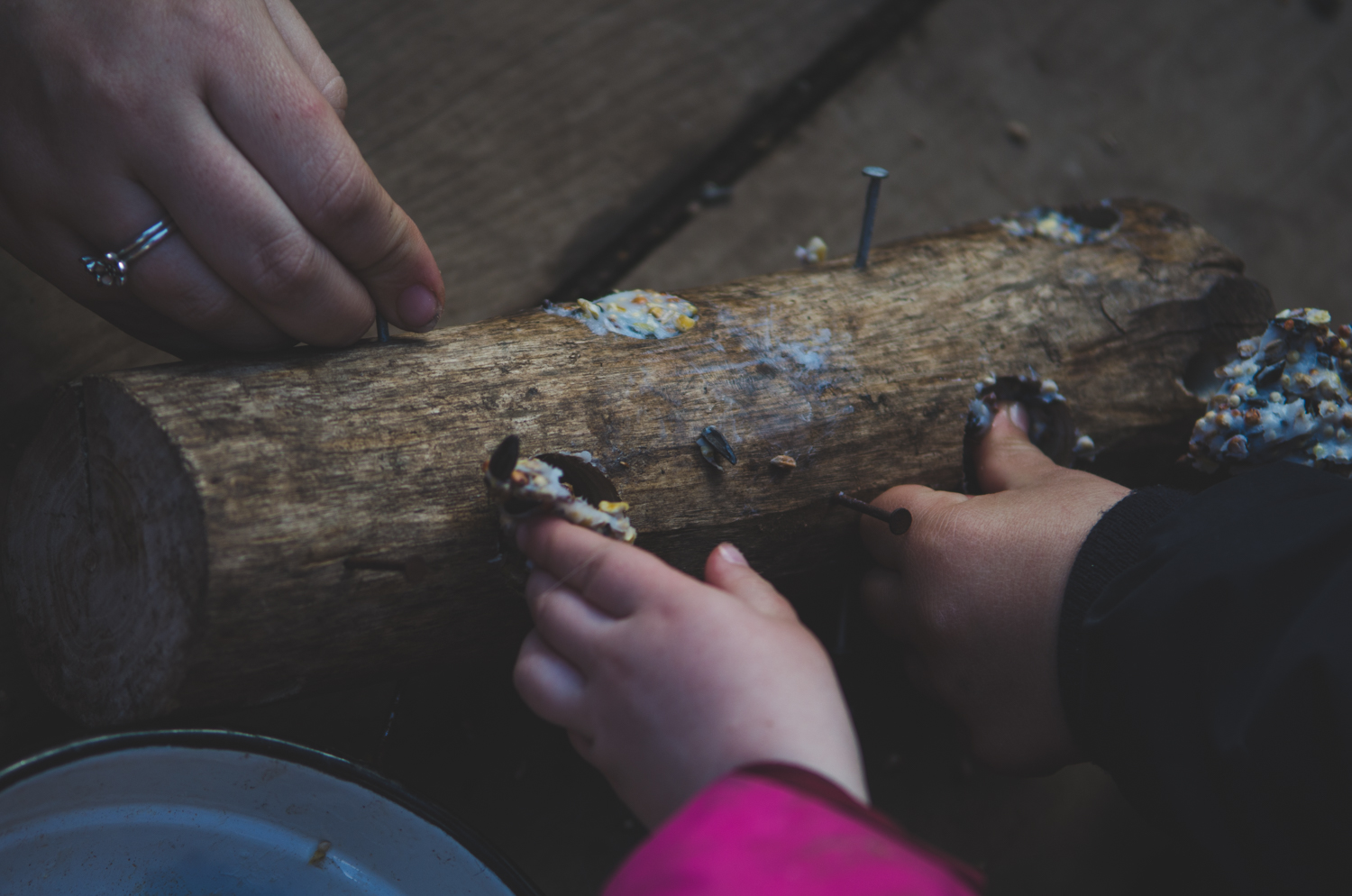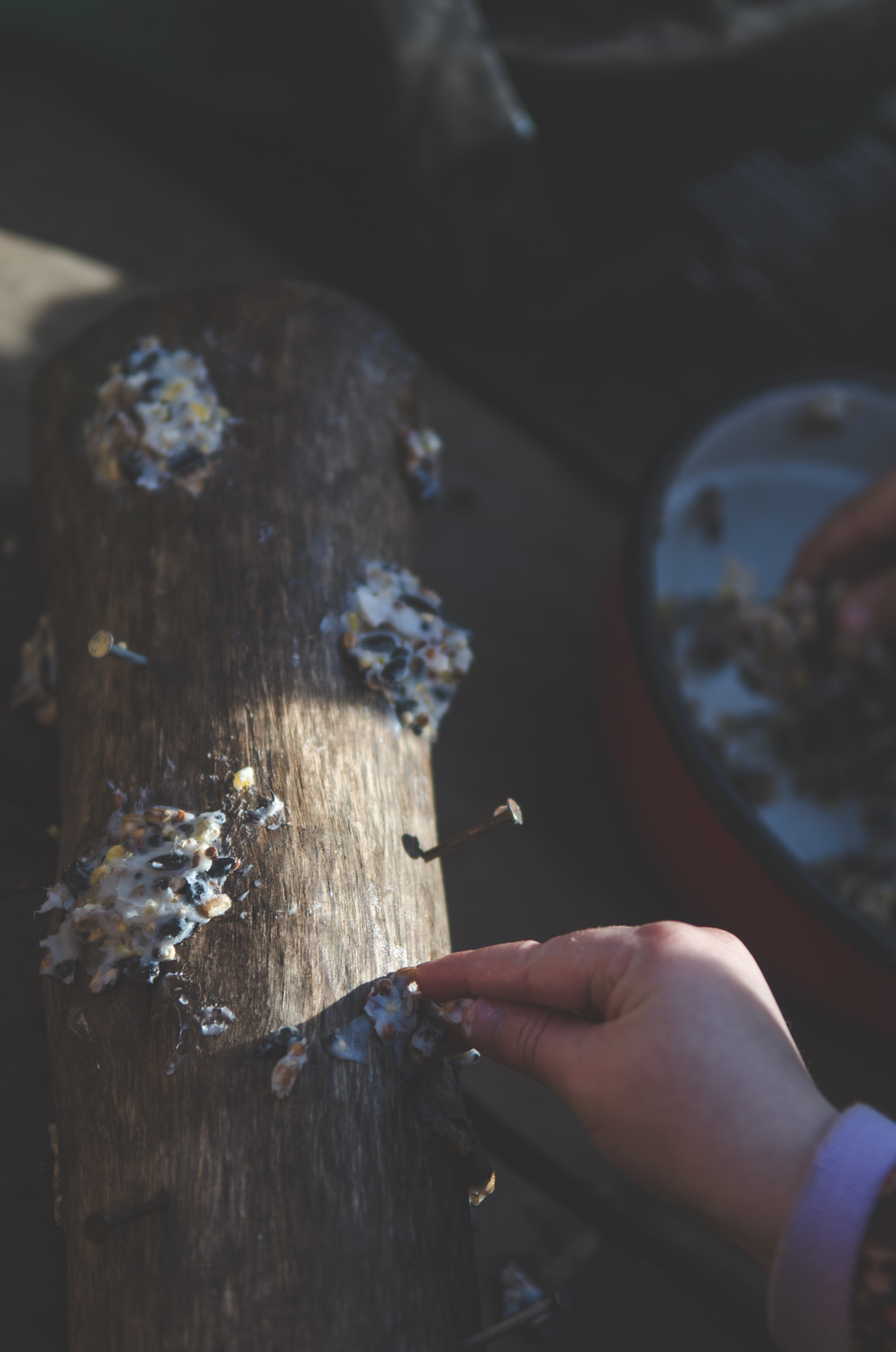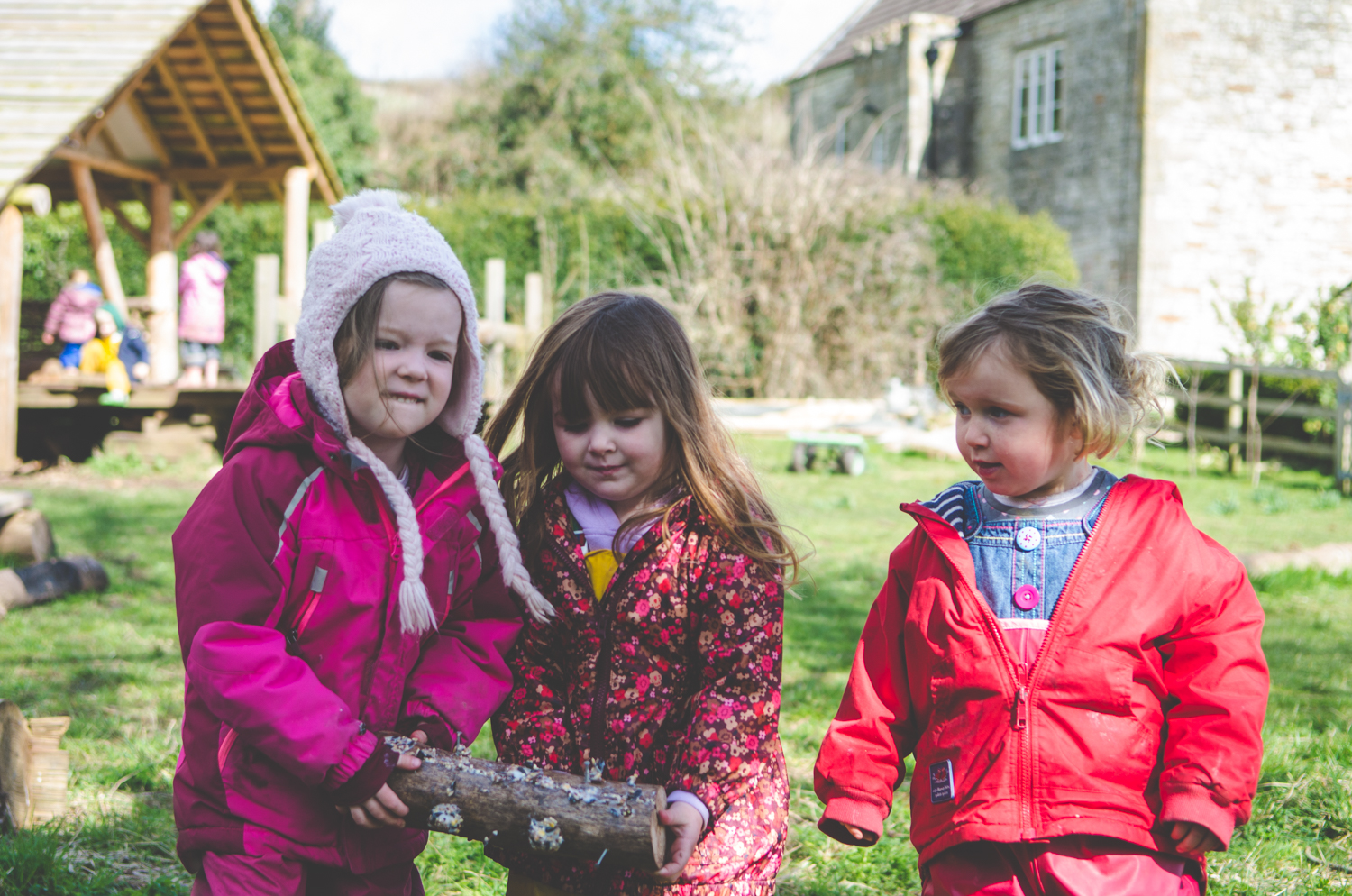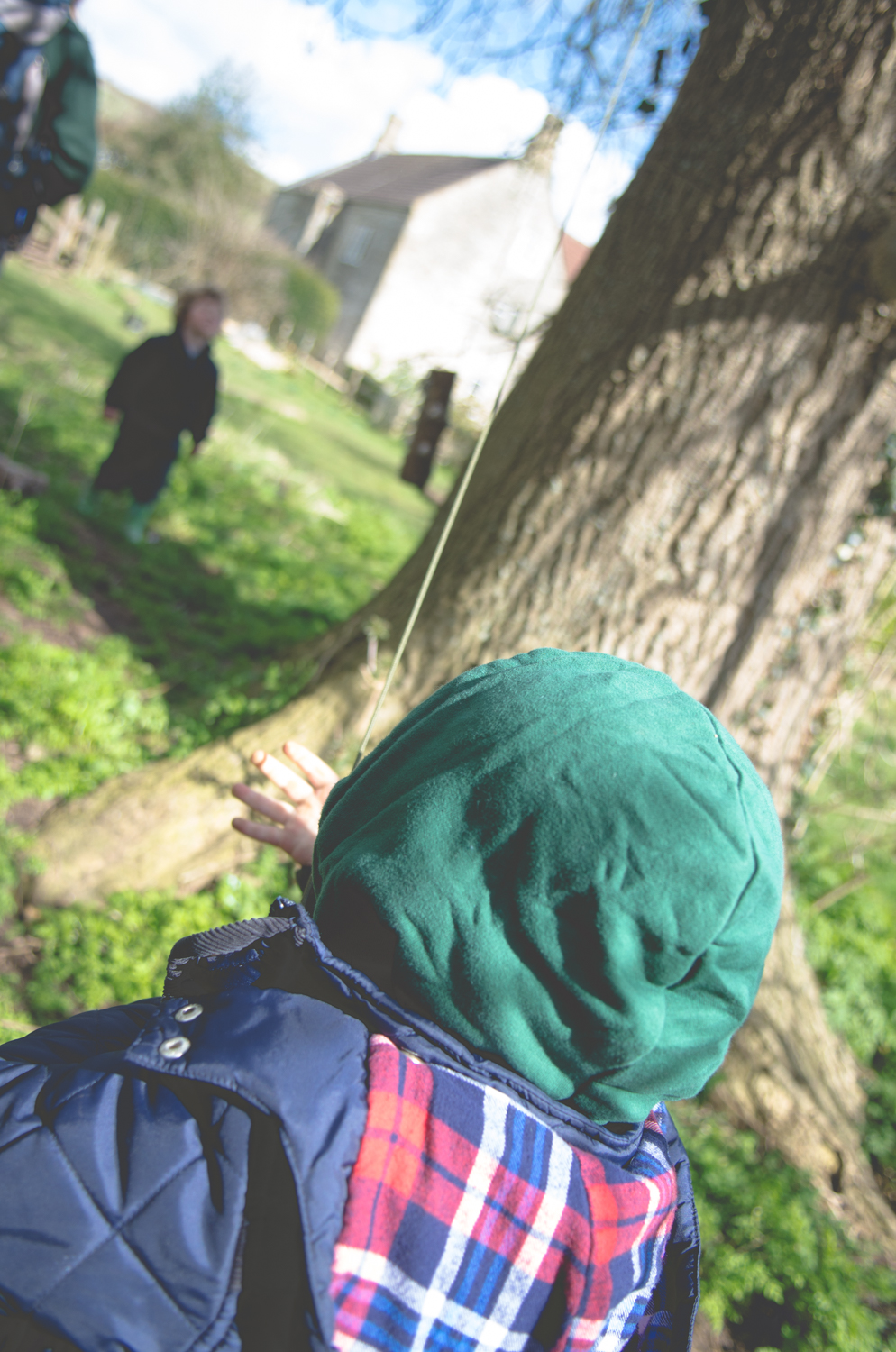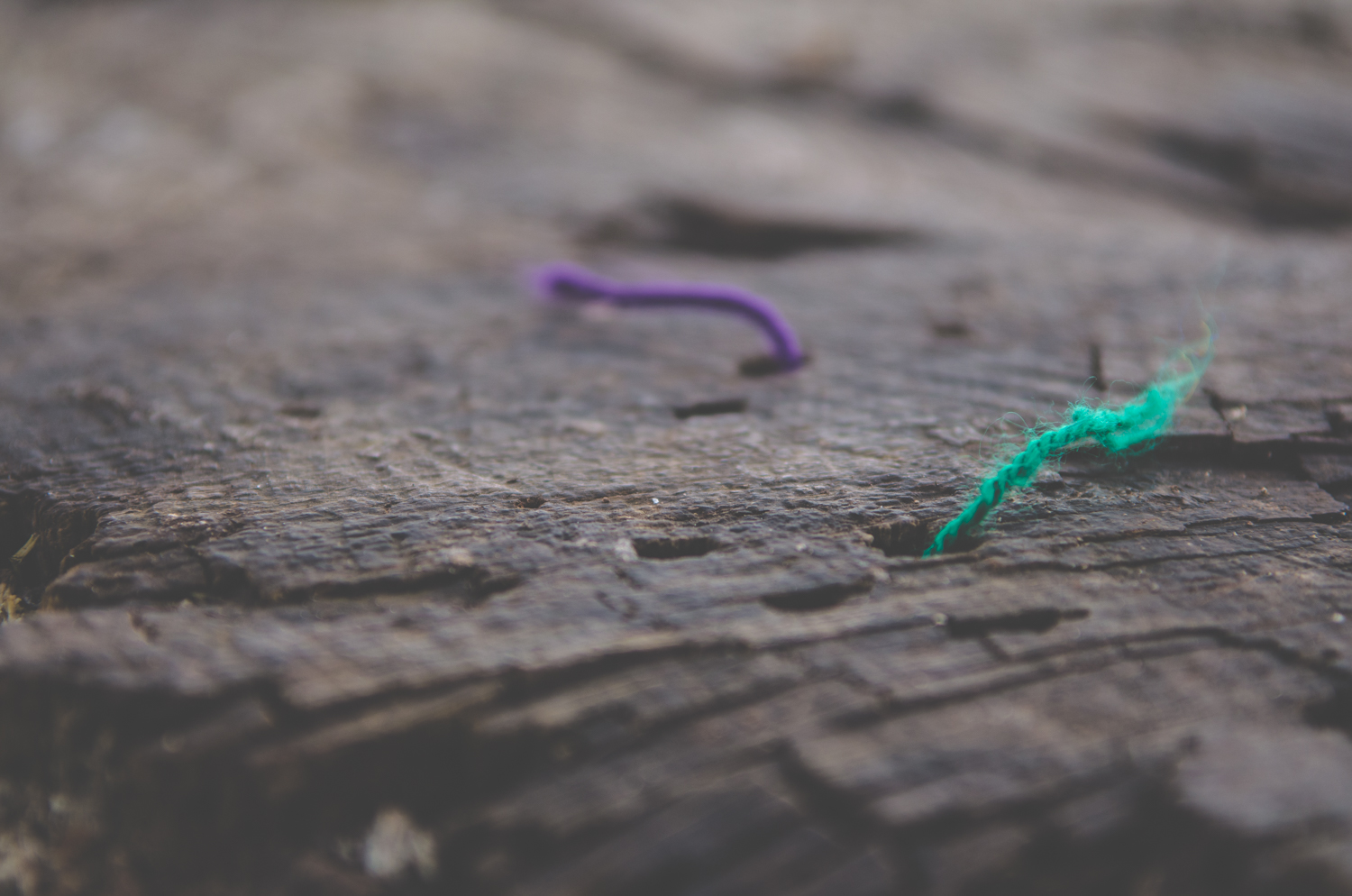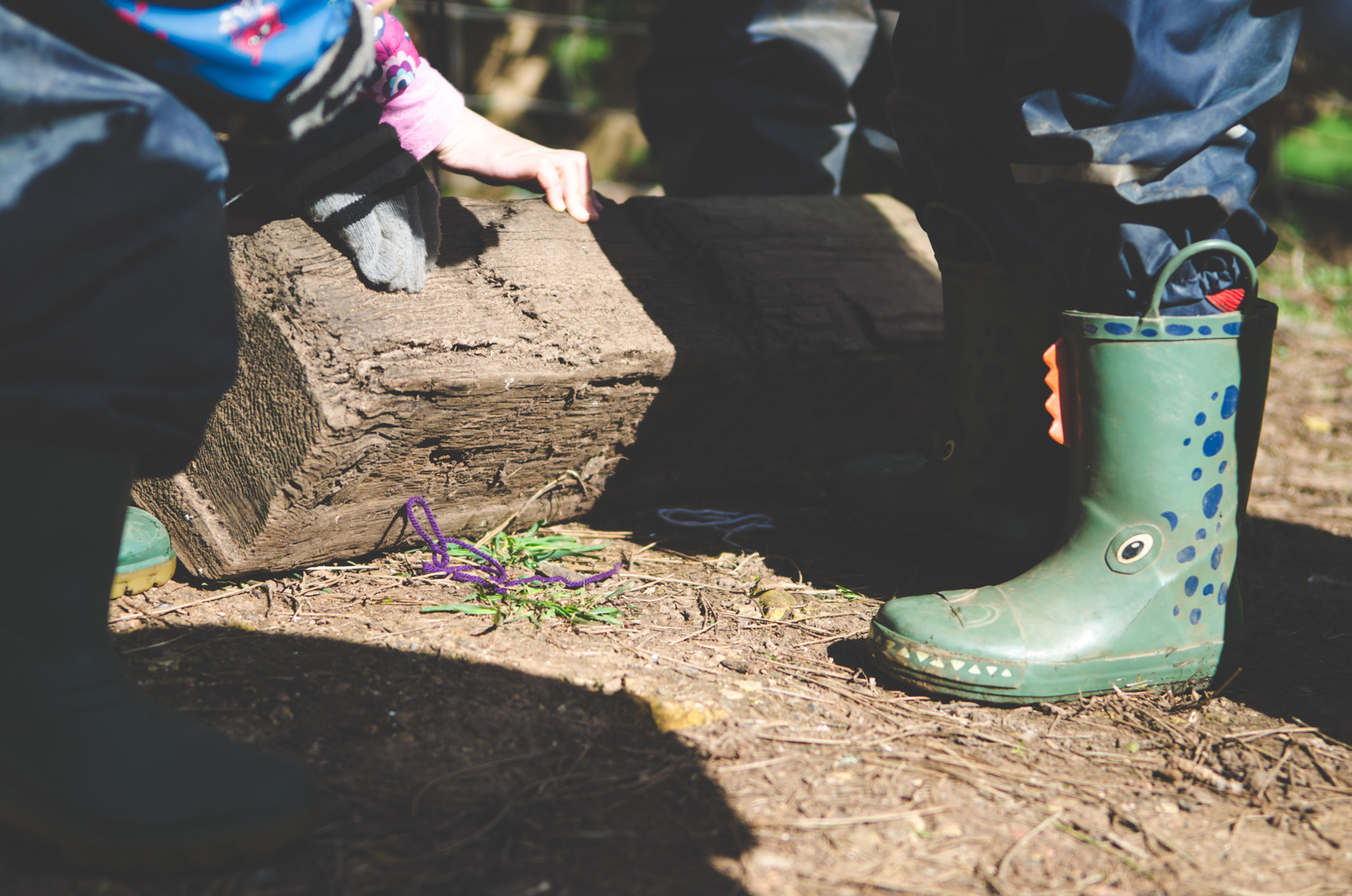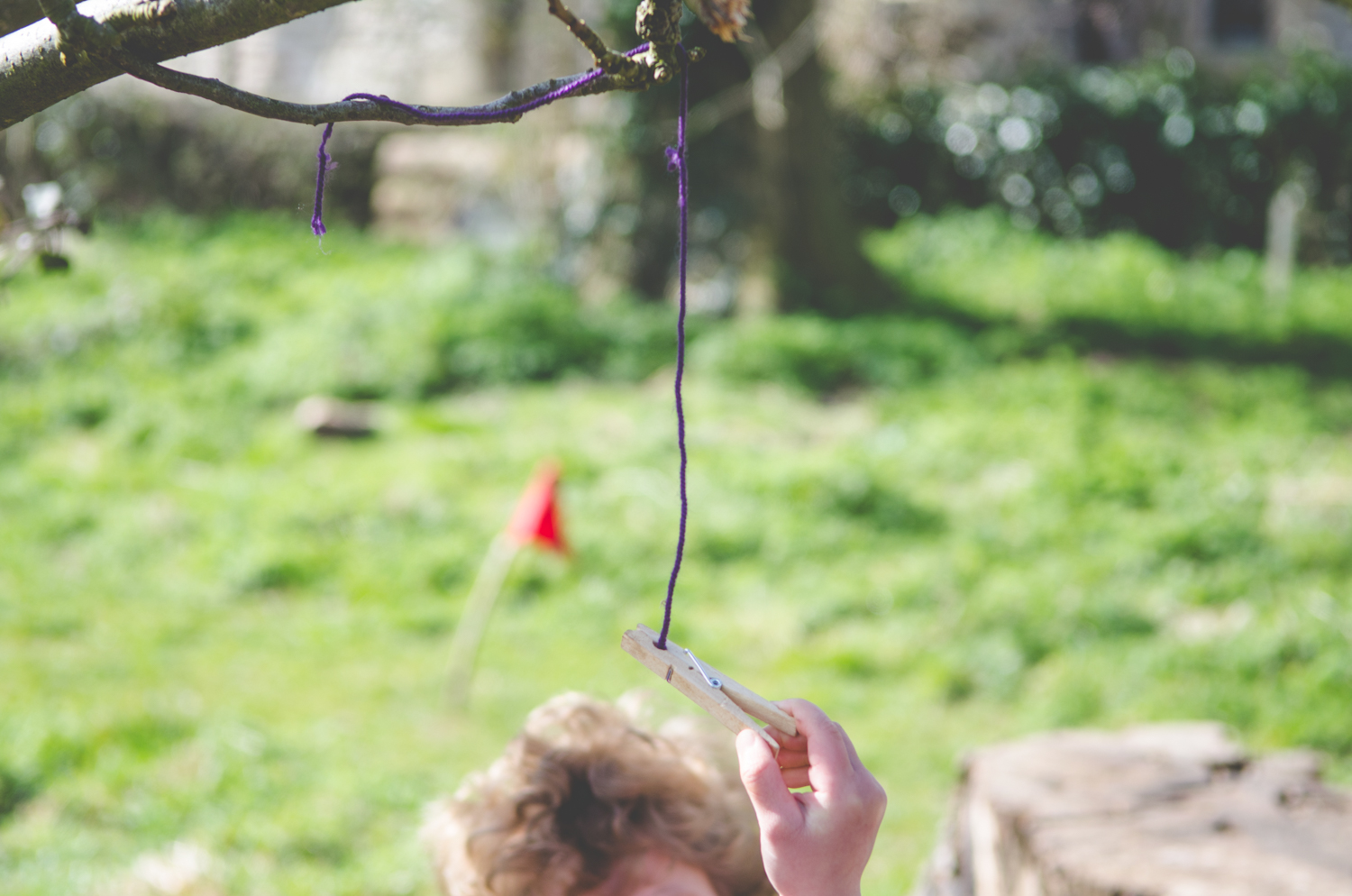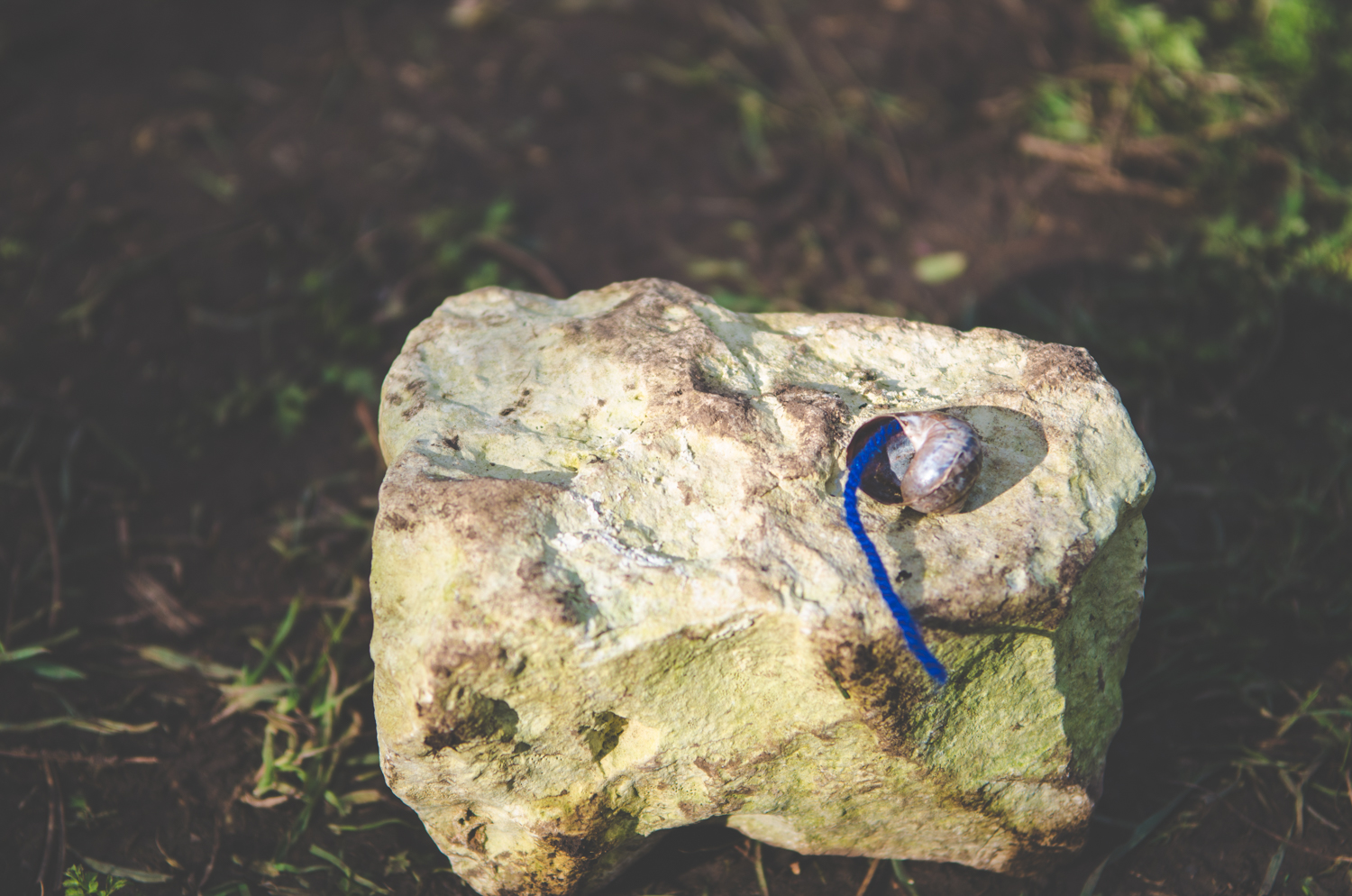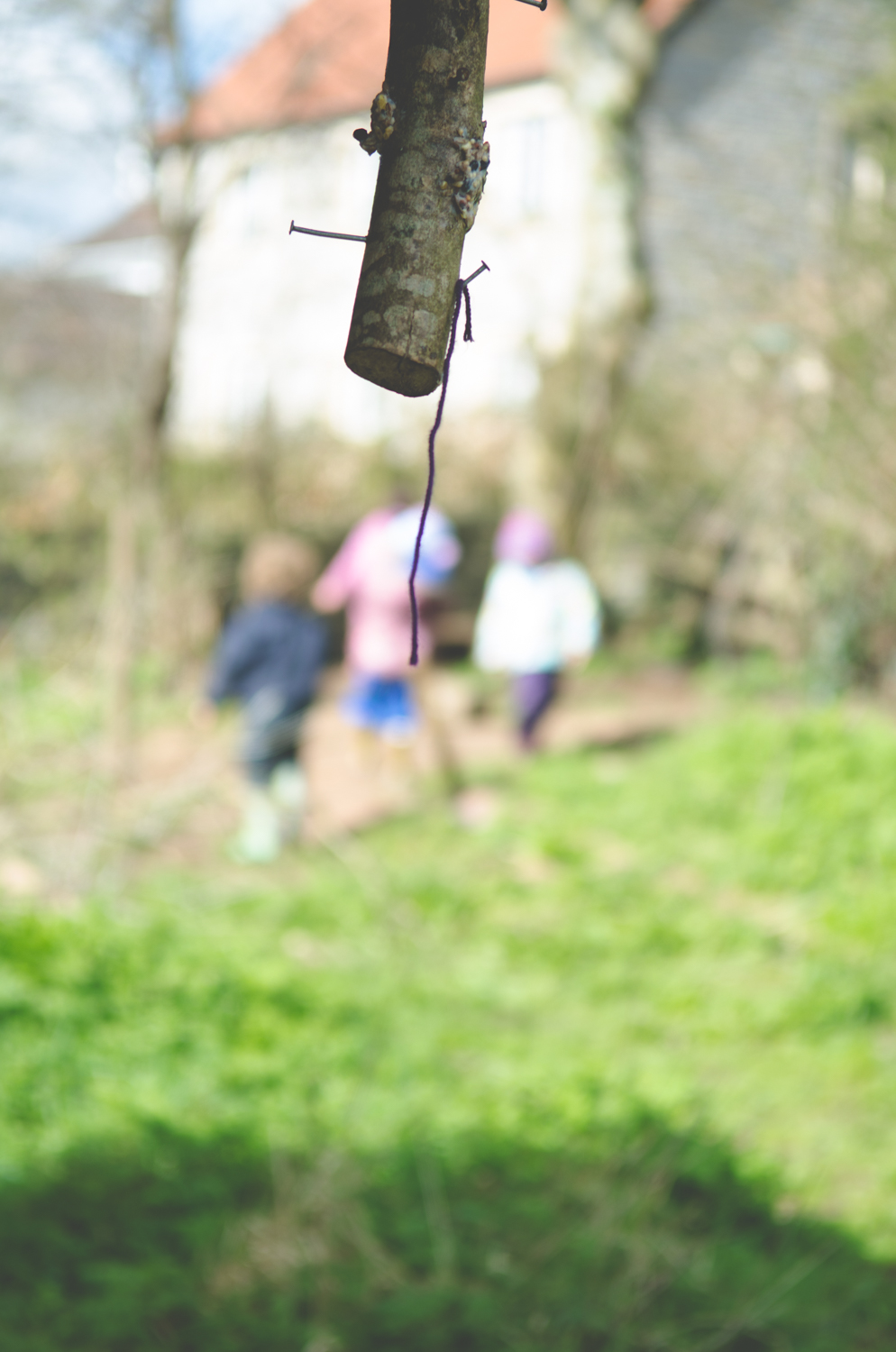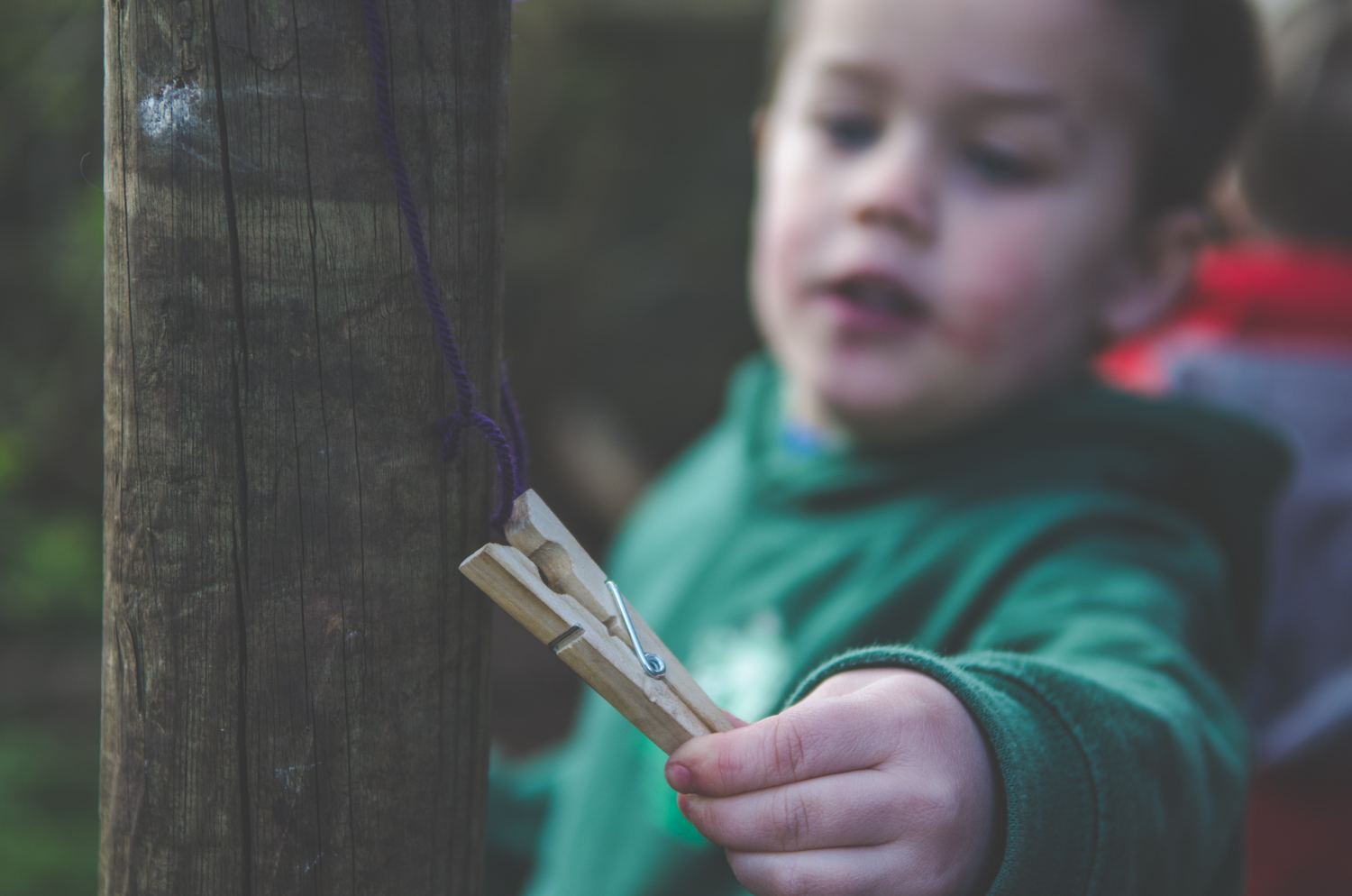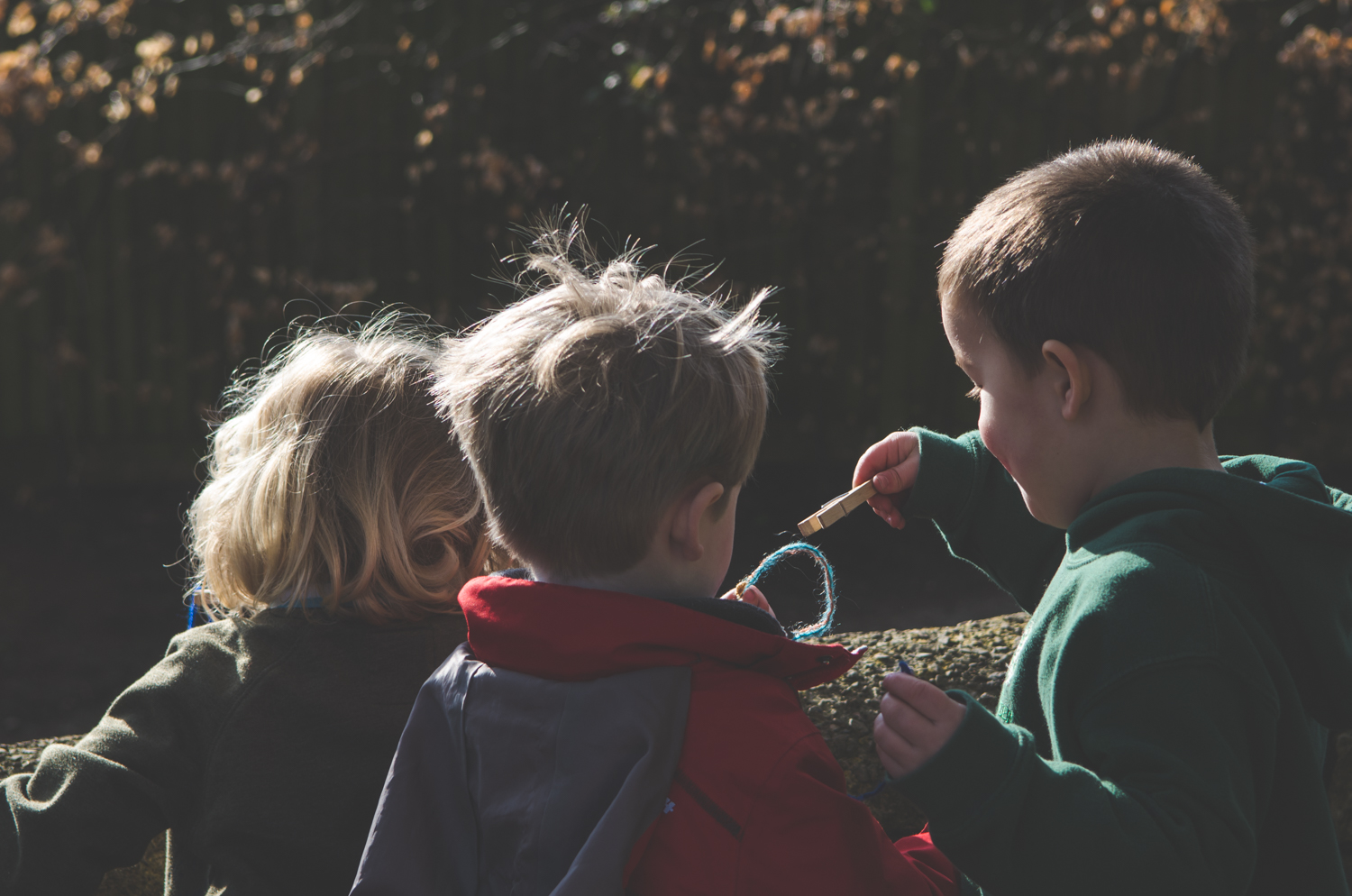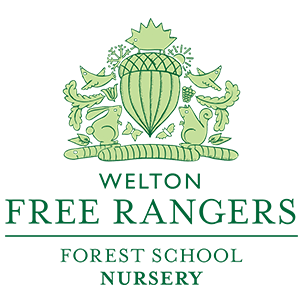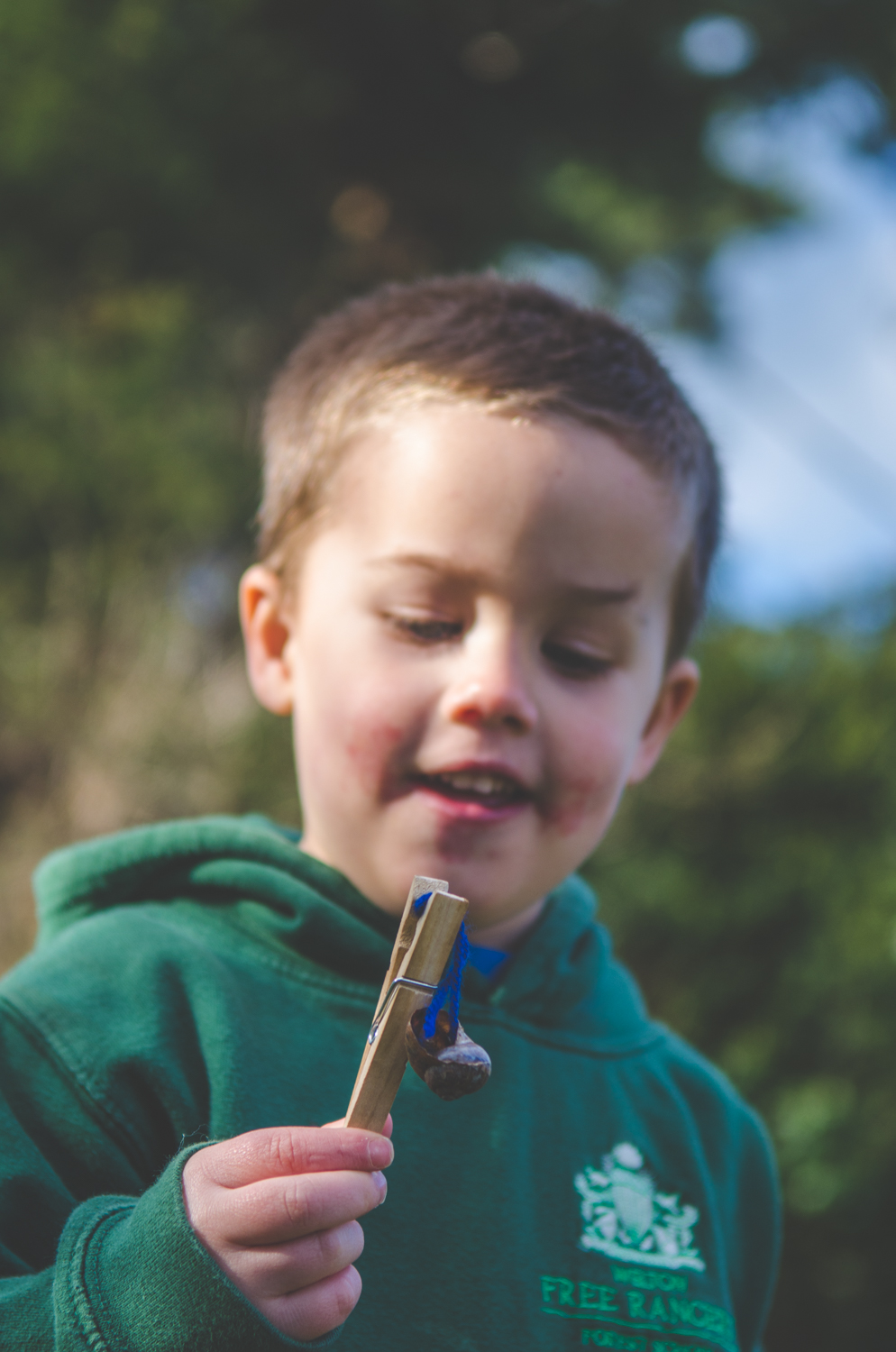You may recall back in January, we built some rather lovely little bird feeders, to give our feathered friends a little energy boost throughout the scarce Winter months. We've looked again at the feeders and why they were an important source of food.
It didn't take long for the last feeders we made to appear on the radar of the birds around Free Rangers. Especially the Robins. They're never too far away, on the lookout for any tasty crumbs we drop from our snack, so when we strung up our feeders they were soon depleted. Despite the weather turning to more favourable temperature this week, we decided again to look at our feeders to see if they needed topping up. This also gave us the opportunity to play a rather fun game!
We started the sessions, by discussing why we needed to feed the birds during the colder months and how we had created the bird feeders. Generally speaking the children all had the right idea: there isn't a lot of food about for the birds. Competition is high for the scarce resources, so it's even more pertinent for us to give them a little boost. Then we asked the children what they thought the birds would find to eat if we hadn't placed out the feeders? "WORMS!" was the unanimous answer and it was further explained I had hidden a host of wriggly string-based snacks for the children to hunt down. The children were then promptly turned into birds themselves (this also saw the return of Herbert the Wizard from the Imagination Stick week!). Hands and arms were turned easily into wings, but what of their beaks? To overcome this anatomical irregularity, we handed out wooden pegs for instant effect. Before we departed we were keen to stress that real wiggly worms aren't to be 'pegged'. Those are for the real birdies.
With the children's excitement almost tangible, they were let loose around the cabin to hunt down those wooly, wriggly beasts. Whether they were caterpillars, ground worms, or woodworm, they were swiftly and deftly plucked from their hiding spots. It was incredibly interesting to watch, and replicated many features of the natural world which we discussed briefly with the children during the hunt. An obvious issue was competition. Although we hid plenty of worms, it wasn't always easy for everyone to get them. The stipulation of the 'game' was for the children to only use the peg to grab the worms, but just like in the bird kingdom, some birds are better prepared/more experienced in the art of worm snatching.There were several instances of 'bird versus bird' (and sometimes versus several other birds too) for ownership of the worm hiding under a log or in the holes of a tree stump. Fraught scenes of "wooden pegs at dawn" were common. Despite this, we did see some excellent cooperative learning at the same time, with the children sharing out worms, letting others take a worm when they had plenty already. Now you wouldn't see that among birds would you!
Having the patience to persevere when at first we don't succeed was another interesting observation. You could almost hear the inner monologue: It's no good. You've tried getting it once, it obviously isn't coming. Go and get that other one. That looks much easier. The pegs themselves were a learning journey all of their own; we take their use for granted as adults but for some children we needed a while to master utilisation, not to mention trying to snare a wind blown, thin wiggly target whilst several other children buzzed around you with the same idea. This also highlighted the deftness of individual children's motor skill development. Fine motor skills need the support and strength of gross motor movements (i.e. hands and fingers require the strength from the shoulders/arms before the proper use of fine motor skills of writing, threading or using scissors for example). We have a mix of ages in pre-school, and it was made quite evident the stages of development of core abilities and strengths which will feed into my planning for the next few weeks.
The worms themeslves were a good talking point too, as we discussed why some weren't so easy to find, whilst other's stood out much easier against their surroundings. Green worms were purposefully hidden in the grasses, brown and grey string was popped in the trees and against bark, and deep purples were placed in the soil. Conversely we also did the opposite, where worms were hidden so they stood out in their surroundings. Once the worms had been found we discussed which worms were easier to spot and how they felt having lots of beaks going for the same worm. We then forged ahead with our bird feeder topping up, which again saw a mix of gross and fine motor skills and exploring the materials with their hands. Holes were filled and feeders re-hung into the trees. Bon appétit birds!
The point of this week's Forest School wasn't to try and turn the children into naturalists, or like this week into ornithologists, by teaching facts and forcing information onto them. Rather we seek to use this information to better their respect and appreciation of their environment, to 'demystify' it so to speak. The learning that does happen, occurs through play, so that this respect and appreciation is more organic than forced. We are in the business of making memories. Memories that have the basis in playing, and developing a love of all things outdoorsy.
Thanks for reading as always, and have a great weekend.
Red Fox
